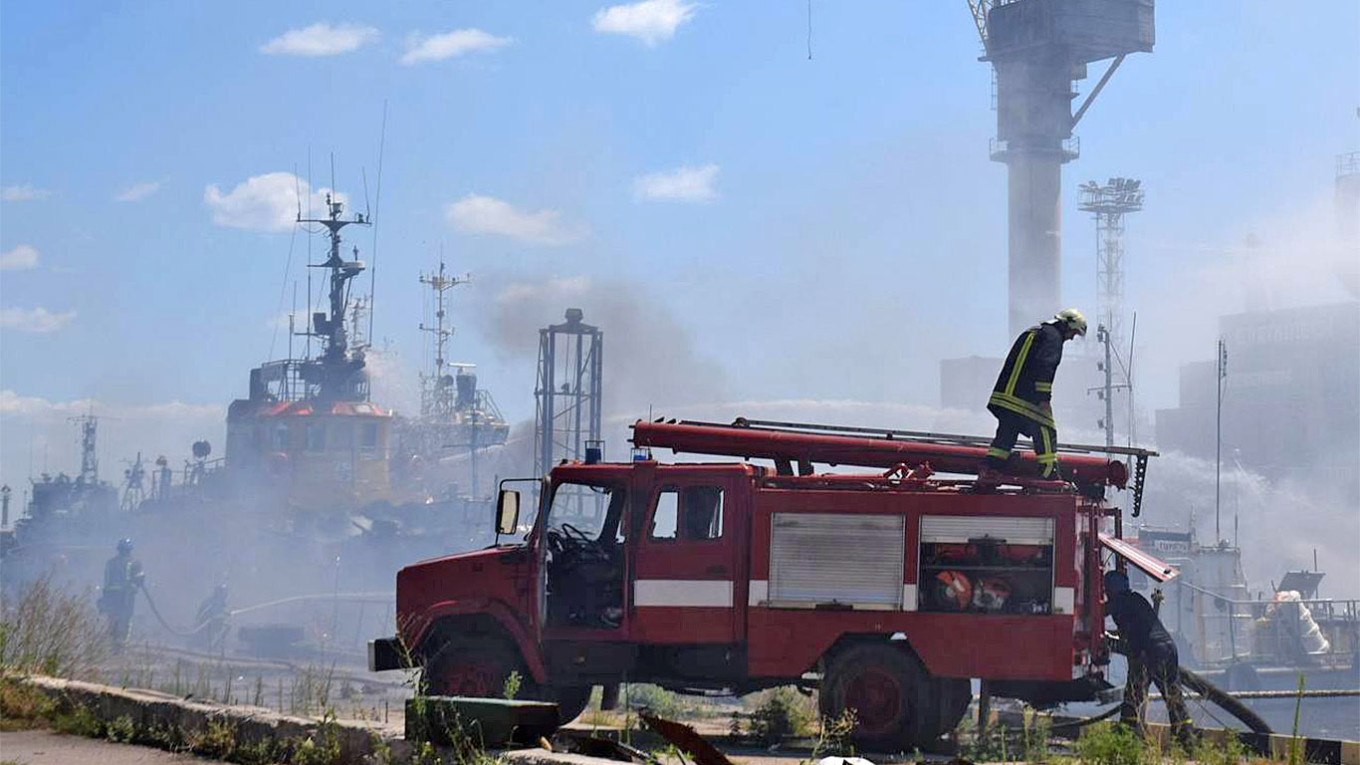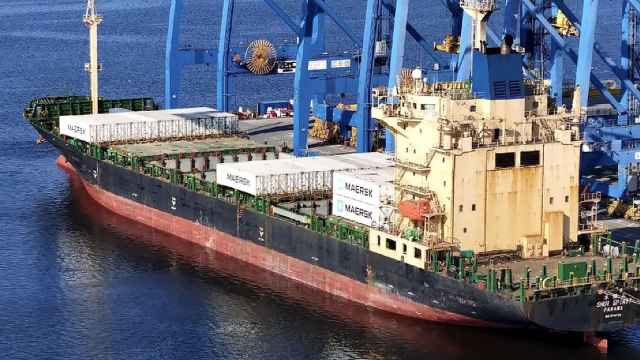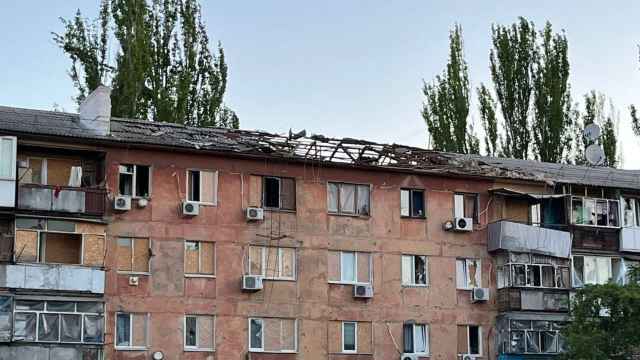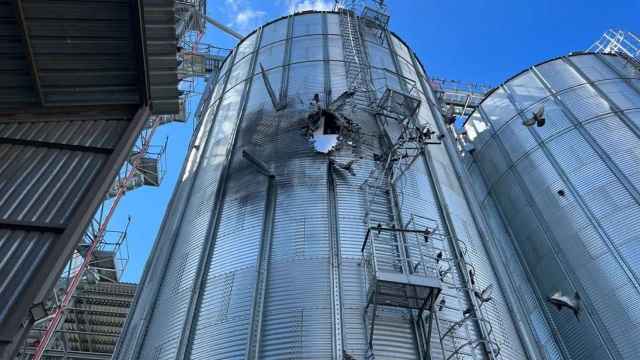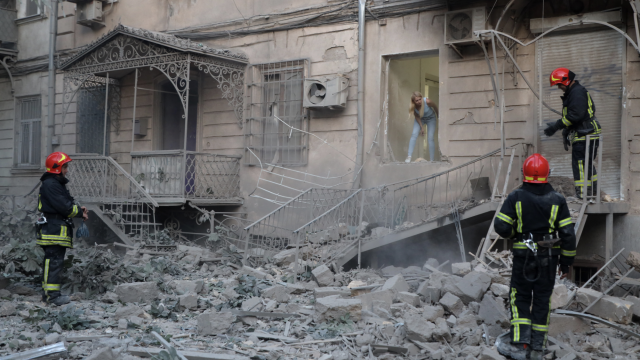The Kremlin said Monday that Russian strikes on Ukraine's Black Sea port of Odesa "should not affect" a UN-brokered deal between Moscow and Kyiv to unblock grain exports.
"This cannot and should not affect the start of shipment," Kremlin spokesman Dmitry Peskov told reporters, two days after Moscow hit the port.
He said Russia's strikes targeted "exclusively" military infrastructure and were "not connected with the agreement on the export of grain."
The weekend strikes on Odesa came less than a day after Moscow and Kyiv signed a landmark deal to release grain exports from Ukraine's ports.
Western countries denounced the move, with the U.S. saying it cast "serious doubt" on Russia's commitment to the deal.
Later on Monday Russian Foreign Minister Sergei Lavrov pointed out the strikes did not affect the port's grain terminal.
Speaking on a visit to Congo-Brazzaville, Lavrov said the strike hit a "military vessel and an ammunition depot where Harpoon anti-ship missiles were recently delivered."
Lavrov claimed the strikes were in "the military part of the port" at a "considerable distance" from the grain terminal.
Ukrainian officials said grain was being stored in the port at the time of the strike, although the food stocks did not appear to have been hit.
Lavrov also said there was "nothing" in the grain deal that stopped Russia from pressing on with its military campaign in Ukraine.
"There is nothing in the obligations that Russia took on that would forbid us from continuing the special military operation," Lavrov said, using the Kremlin term for the conflict.
Turkey, which helped broker the accord, said after the cruise missile hits that it had received assurances from Moscow that Russian forces were not responsible.
But Russia then admitted that it had struck a Ukrainian military vessel and arms delivered by Washington.
Ukraine has denounced the strikes as "barbarism."
Odessa is one of three export hubs designated in the agreement.
A Message from The Moscow Times:
Dear readers,
We are facing unprecedented challenges. Russia's Prosecutor General's Office has designated The Moscow Times as an "undesirable" organization, criminalizing our work and putting our staff at risk of prosecution. This follows our earlier unjust labeling as a "foreign agent."
These actions are direct attempts to silence independent journalism in Russia. The authorities claim our work "discredits the decisions of the Russian leadership." We see things differently: we strive to provide accurate, unbiased reporting on Russia.
We, the journalists of The Moscow Times, refuse to be silenced. But to continue our work, we need your help.
Your support, no matter how small, makes a world of difference. If you can, please support us monthly starting from just $2. It's quick to set up, and every contribution makes a significant impact.
By supporting The Moscow Times, you're defending open, independent journalism in the face of repression. Thank you for standing with us.
Remind me later.


